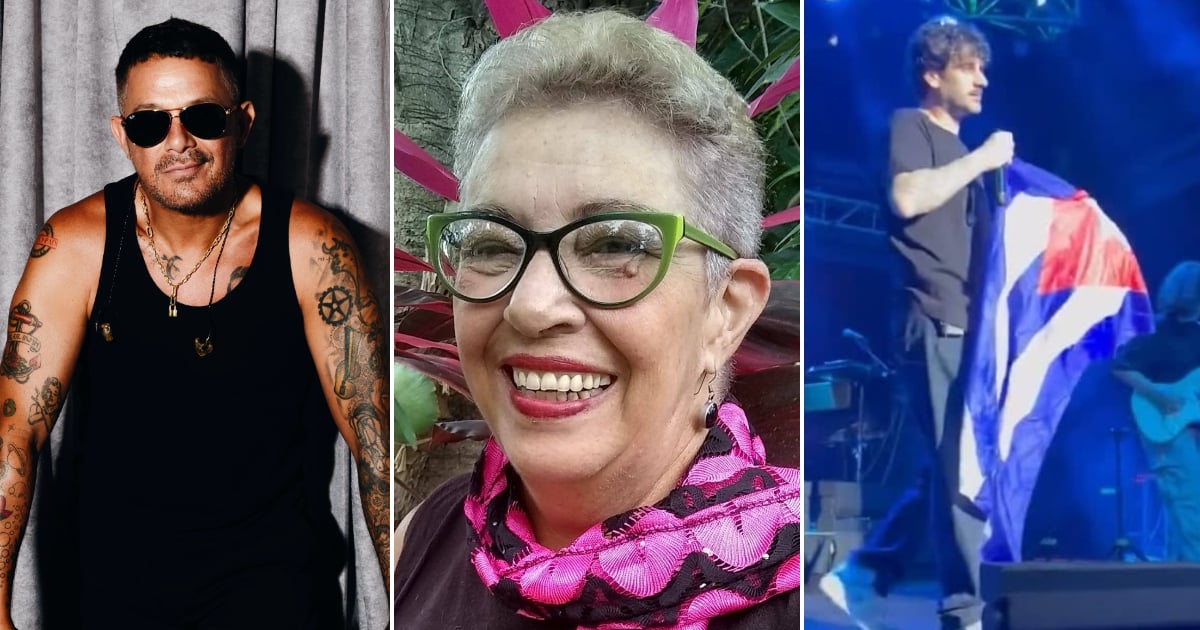María del Carmen Hernández Carús, an instructor of technical courses at the Central University "Marta Abreu" of Las Villas (UCLV), recently took to Facebook to voice her disapproval of artists, YouTubers, and international students who have shown solidarity with Cuban university students protesting against the increased mobile data rates on the island.
In her post, which was shared by Cubadebate, Hernández Carús targeted Alejandro Sanz, Melendi, and Spanish content creators, suggesting they should focus on social issues in their own countries rather than supporting Cuban students. Referring to homelessness at Madrid’s airport, she wrote, "Why not help solve that problem back in your beloved Spain?" Additionally, she criticized Argentine youths who have supported the Cuban students, questioning why they do not protest against repression in their own nations.
The professor issued a series of accusations against those outside Cuba who highlight the repression by the Cuban regime and publicize the protests over ETECSA's so-called "rate hike." She accused them of ignoring abuses in countries like the United States and labeled their statements on Cuba as hypocritical, ending her post with, "Such hypocrisy is disgusting!"
Her comments came shortly after Alejandro Sanz voiced his support for the Cuban youth opposing the ETECSA rate hike, and Melendi unfurled a Cuban flag at one of his concerts, proclaiming, "Long live my free Cuba!" Supportive messages have also emerged from Argentina, where university students and socialist leaders released videos in solidarity with Cuban students, as well as from Chile and other nations. Furthermore, Spanish YouTubers from the Black Mango channel released an episode sharing their observations on Cuba’s social situation after visiting impoverished neighborhoods in Havana.
Since the announcement of the new ETECSA tariff structure on May 30, students from various universities across the country have initiated an academic strike in protest. They have publicly denounced that the new conditions restrict internet access and force reliance on top-ups from abroad. In response, authorities have called for unity, and there have been reports of State Security visits and warnings to student organizers, particularly at UCLV.
Simultaneously, the Federation of University Students (FEU) announced the formation of a "multidisciplinary group" to engage in dialogue with ETECSA and propose solutions, although the company has made it clear that there will be no reversal of its rates. This initiative has been met with skepticism among students, who view it as a mere simulation of dialogue with no real impact.
Meanwhile, the FEU of UCLV stated in a communiqué that their priority is to "maintain calm" on campus, in the face of what they consider a manipulation campaign on social media. This stance has been criticized by parts of the student body, who demand greater transparency and representation in handling the crisis.
FAQs on Cuban Student Protests and International Reactions
What prompted the protests by Cuban students?
The protests were sparked by ETECSA's announcement of higher mobile data rates, which students argue limit access to the internet and create dependency on international top-ups.
How have international figures responded to the Cuban protests?
International figures like Alejandro Sanz and Melendi have shown support for the Cuban students, with Sanz expressing solidarity and Melendi displaying a Cuban flag at his concert.
What measures have Cuban authorities taken in response to the protests?
Cuban authorities have called for unity and reportedly sent State Security to visit and warn student organizers, especially at the UCLV.
